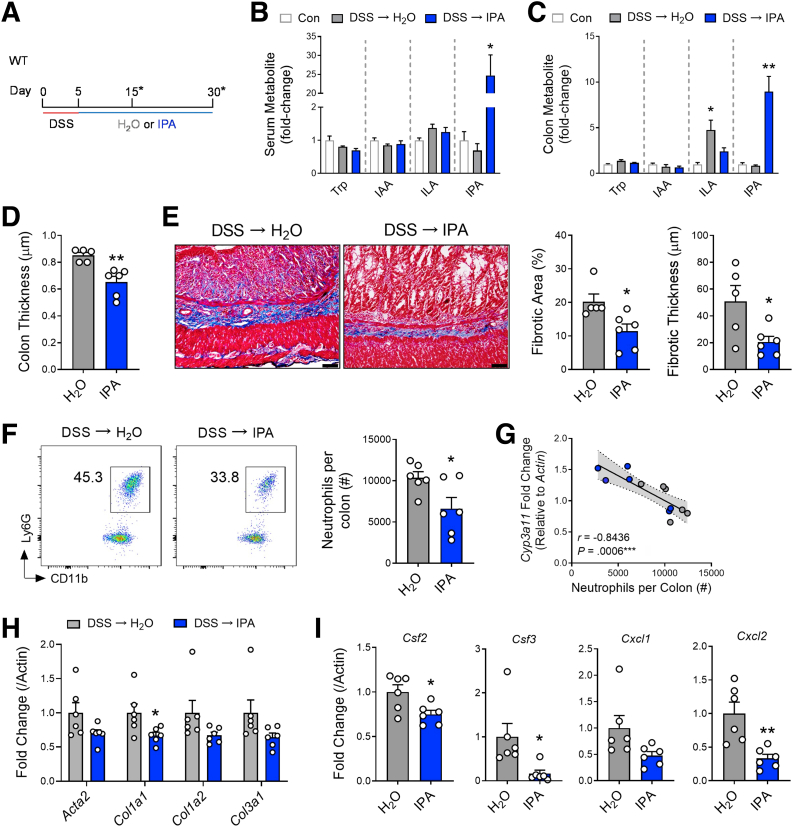Figure 11.
Oral administration of microbial metabolite indole-3-propionic acid (IPA) prevents development of inflammation and fibrosis in the colon after DSS-induced injury. (A) Experimental outline demonstrating the course of DSS (3%) administration for 5 days, followed by a switch to either H2O or IPA dissolved in pH matched H2O (∗indicates the different analysis time points). (B and C) Circulating serum and colonic levels of different tryptophan metabolites (trp, tryptophan; IAA, indole-3-acetic acid; ILA, indole-3-lactic acid; IPA, indole-3-propionic acid) in mice after oral administration of IPA (expressed as fold-change compared with WT control mice; n = 3–6 per group). (D) Macroscopic colon thickness and (E) representative Masson’s trichrome staining of the colon with associated analysis of microscopic fibrotic area and fibrotic thickness in mice receiving H2O or IPA water for 25 days after induction of colitis with DSS (n = 5–6 per group; scale bar = 100 μm). (F) Representative FACs plots with associated numbers of neutrophils infiltrating into the lamina propria of the healing colon (day 15) of mice receiving either H2O or IPA water (n = 6 per group). (G) Colonic gene expression of the PXR target gene Cyp3a11 correlated to the number of neutrophils infiltrating the colon of mice and colonic gene expression of (H) fibrotic factors and (I) inflammatory cytokines in the healing colon of mice receiving either H2O or IPA water. Data are presented as mean ± standard error of the mean. Student t test (D–F, H, and I) and one-way analysis of variance with Tukey post hoc test (B and C). ∗P < .05, ∗∗P < .01, ∗∗∗P < .001.

